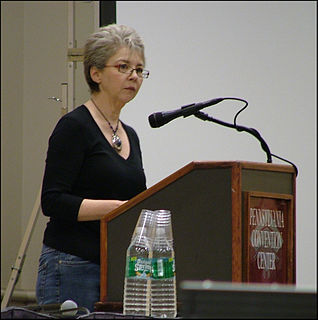A Quote by Elie Wiesel
Why is war such an easy option? Why does peace remain such an elusive goal? We know statesmen skilled at waging war, but where are those dedicated enough to humanity to find a way to avoid war
Related Quotes
The twentieth century had dispensed with the formal declaration of war and introduced the fifth column, sabotage, cold war, and war by proxy, but that was only the begining. Summit meetings for disarmament pursued mutual understanding and a balance of power but were also held to learn the strengths and weaknesses of the enemy. The world of the war-or-peace alternative became a world in which war was peace and peace war.
Have you ever noticed that the only metaphor we have in our public discourse for solving problems is to declare war on it? We have the war on crime, the war on
cancer, the war on drugs. But did you ever notice that we have no war on homelessness? You know why? Because there's no money in that problem. No money to be made off of the homeless. If you can find a solution to homelessness where the corporations and politicians can make a few million dollars each, you will see the streets of America begin to clear up pretty damn quick!
Now that I've seen what war is, what civil war is, I know that everybody, if one day it should end, ought to ask himself: "And what shall we make of the fallen? Why are they dead?" I wouldn't know what to say. Not now, at any rate. Nor does it seem to me that the others know. Perhaps only dead know, and only for them is the war really over.
People want to know why the South is so interested in the Civil War. I had maybe, it's a rough guess, about fifty fistfights in my life. Out of those fifty fistfights, the ones that I had the most vivid memory of were the ones I lost. I think that's one reason why the South remembers the war more than the North does.




































